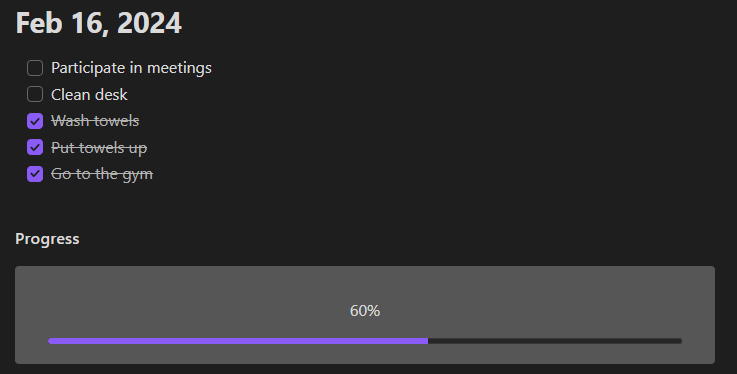Hello, I took inspiration from this forum post to create my own progress bar for the tasks in the current note.
Here’s what it looks like
And here’s the code:
function renderProgressBar() {
const container = dv.el("div", "", { attr: { style: `
width: 100%;
margin: 0 auto;
padding: 1rem;
display: flex;
flex-direction: column;
gap: 16px;
align-items: center;
justify-content: center;
align: center;
background: rgba(255, 255, 255, 0.25);
border-radius: 4px;
`
}});
const progressText = dv.el("text")
const progressBar = dv.el("progress", "", { attr : { max: "100", value: "0",
style: `
width: 95%;
`
}});
container.appendChild(progressText);
container.appendChild(progressBar);
return { container, progressText, progressBar };
}
function calculateProgress() {
const tasks = (dv.current()?.file?.lists || []).filter(({task}) => task);
return Math.round([...tasks].reduce((acc, { checked }) => acc +
Number(checked), 0) / tasks.length * 100 || 0);
}
function updateProgressBar({ container, progressText, progressBar }) {
const progress = calculateProgress();
if(typeof progress === 'number') {
progressBar.value = progress;
progressText.innerHTML = `${progress}%`;
}
}
const progressBar = renderProgressBar();
updateProgressBar(progressBar);
setInterval(updateProgressBar, 500, progressBar);
